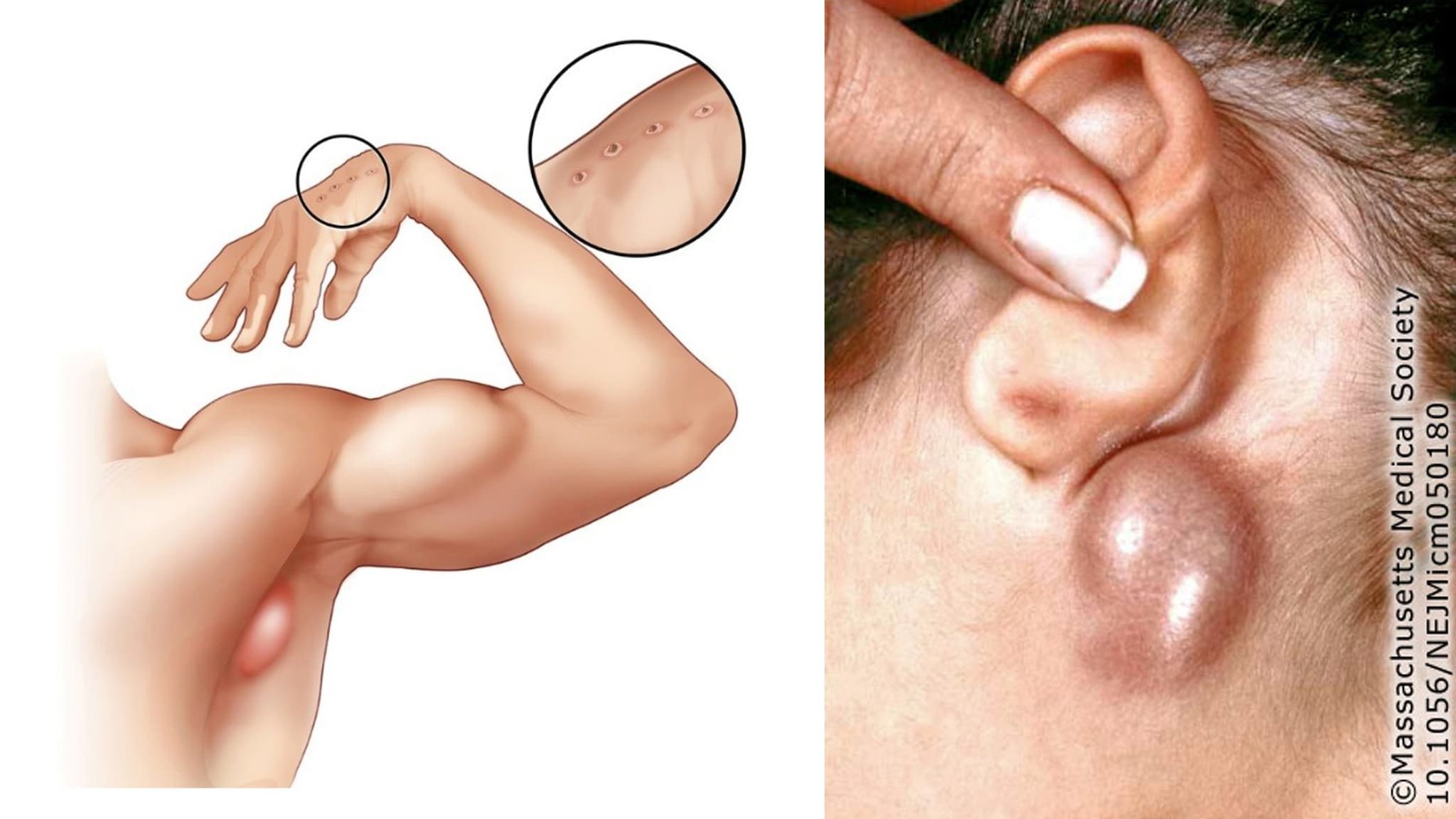Key points
- Cat scratch disease (CSD) is a bacterial infection caused by Bartonella henselae.
- Most infections occur after scratches from domestic or feral cats, especially kittens.
- CSD occurs wherever cats and fleas are found.

Transmission
People become infected with Bartonella henselae from the scratch of domestic or feral cats, particularly kittens. Cats can have fleas that carry B. henselae bacteria. These bacteria can be transmitted from a cat to a person during a scratch that is contaminated with flea feces (poop). Infected cats that lick a person's open wound or bite can also spread the bacteria. Some evidence suggests that these bacteria may spread directly to people by the bite of infected cat fleas, but this has not been proven.
B. henselae infection (CSD) occurs most often in children under the age of 15. Though more common in the southeast, CSD occurs throughout the United States. Stray cats are more likely than pets to be infected with B. henselae. In the United States, most cases of CSD occur in the fall and winter.
Signs and symptoms
- Low-grade fever
- Enlarged, tender lymph nodes that develop 1–3 weeks after exposure to a cat
- A papule or pustule at the site of the scratch
Rarely, infections of the eye, liver, spleen, brain, bones, or heart valves can occur. Some of these infections occur primarily in people with weakened immune systems, such as those with advanced HIV infection.

Endocarditis
As with many Bartonella species, B. henselae can sometimes cause infection of the heart valves, called endocarditis. In many cases, blood cultures might be negative (culture-negative endocarditis), which can make the diagnosis more challenging.
Prevention
- Avoid cat scratches, bites, and licks, especially from kittens or stray cats. This is especially important for people who have weakened immune systems.
- Wash hands promptly after handling cats.
- Talk to your veterinarian about flea prevention products for your cat. (Never use products that contain permethrin on cats.)
- Keep cats indoors and away from stray cats. People who have weakened immune systems should avoid owning cats less than one-year-old.
Frequently asked questions
My cat is completely healthy. How can it have an infection?
Cats most commonly become infected with B.henselae (the bacteria that cause CSD) through flea bites. They can less commonly become infected during fights with other infected cats or through feline blood transfusions. While some cats become ill, most simply have the bacteria in their blood without getting sick. Some studies have found the Bartonella bacteria in the blood of up to 1 in 3 healthy cats, particularly kittens.
Should I get my pet tested and treated for Bartonella, just to be safe?
Testing and treatment is not recommended, unless your pet is sick. For cats that do become sick, the illness usually consists of fever for 2 to 3 days. Symptoms requiring veterinary care include fever lasting more than 3 days, vomiting, lethargy, red eyes, swollen lymph nodes, or decreased appetite. Treating pets for B. henselae with antibiotics can take a long time.
My child got scratched by the neighbor’s kitten and now my husband is worried about “CSD.” How worried should we be?
Most cat scratches do not result in CSD. Clean scratch wounds with soap and water. If your child develops a fever; enlarged, tender lymph nodes that develop 1 to 3 weeks after being scratched; or a pustule at the scratch site, see their healthcare provider. Treatment with antibiotics is usually not necessary, but may help reduce lymph node swelling.
I have a weakened immune system. Should I give my cat away?
If you are living with HIV, are being treated for cancer, or have any other condition that might suppress your immune system, you can keep your cat. You do not need to test or treat a healthy cat for Bartonella.
To reduce your risk of getting CSD:
- Keep your cat indoors.
- Avoid cat scratches, bites, and licks. Declawing is not recommended to prevent CSD.
- Promptly wash any cat scratches or bites with soap and water.
- Avoid contact with fleas.
- Treat your cat with a flea control product recommended by your veterinarian.
- If you are getting a cat, make sure it's at least a year old, in good health, and free of fleas. Avoid and do not adopt stray cats or cats with flea infestations.
